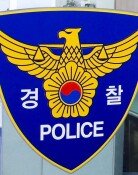[Editorial] Rohs Anti-Newspaper Policy Sets Back Democracy
[Editorial] Rohs Anti-Newspaper Policy Sets Back Democracy
Posted March. 31, 2007 07:03,
On April 1, 1920, when a national longing for the restoration of national rights was spreading all over the country after the March 1st Movement and the establishment of the Korean Provisional Government in Shanghai, Dong-A Ilbo printed its first issue at its building in Hwa-dong, Jongno-gu, Seoul. Its first editorial declared the people of Joseons media, democracy, and culture as its three foundational principles. Such principles are still guiding the Korean press even today, 87 years later. Dong-A played the role of a government when there was no government by speaking for our nation.
The period of April 3-8 is the 51st Newspaper Week. The Korean Association of Newspapers chose Good Newspaper, Good Country as this years motto. Newspaper Day is a day when Dongnip Sinmun (Independence News), Koreas first private newspaper, was inaugurated. From the latter days of the Joseon Dynasty, through the period of Japanese occupation of Korea, to the present day, newspapers have contributed to awakening national consciousness and establishing national foundations.
On Dong-As 87th anniversary and with the 51st Newspaper Day nearing, however, we cannot help but feel perplexed at the situation of the Korean press, particularly with its newspapers. Dong-A can proudly say that it has played a significant role in defending values of anti-communism, anti-dictatorship, and democratization since the day Korea achieved its independence. In the process, Dong-A passed through many vicissitudes, including confronting the autocratic administration that was oppressing the freedom of the press with a blank ad.
Although democratization made significant progress through the democracy uprising of June 1987, the freedom of the press has regressed under the Roh administration. Roh has made oppressive moves to pull down critical newspapers with his administrative power, including cutting ads by public companies and the government, imposing penalties using arbitrary notifications, and acquiring newspaper network with taxes. Despite its means to promote national administration and raise objections, the government has tried to bully newspapers with lawsuits and requests for arbitration over certain news articles. This is unprecedented even under a dictatorship.
Is President Rohs attack of newspapers in the interest of the nation and the people? He is hurting the pride of journalists and pushing his secretaries and officials toward an unnecessary war with the press. Leftist organizations and the Past History Committee continue to try and muffle the history of newspapers, which have passed through trials with the nation.
Any self-righteous political power denies democracy in condemning critical press. A dictatorship starts as a power that suppresses critical voices. The First Amendment of the U.S. Constitution declares, Congress shall make no law abridging the freedom of speech, or of the press, to protect the foundational principle of the freedom of the press.
Twenty-first century Korea, however, appears to be going against the course of world history. All unconstitutional newspaper laws made by the current administration to oppress critical main news agencies and promote pro-ruling party minor newspapers should be abolished.
The press protects democracy by watching and holding power in check. The Heritage Foundation, which publishes the worlds economy and freedom index every year, emphasizes the feedback role of the press in democratic countries. The people as taxpayers have the right to know how the government is using taxes. The current government, however, is blocking the access of the press by controlling the press room and avoiding interviews while presenting their own briefings to the people.
Dong-A promises to stand by its own principles despite internal and external hardships.







